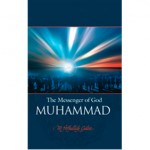Wording and Meaning of the Qur’anic Verses
Q: How can we explain the harmony in both the wording and meaning of the Qur’anic verses?
The words of the Qur’an are in perfect harmony with their meanings. They are free of the least defect and far from excessiveness or any deficiency. This may be something that appears difficult to achieve but it is clear that the Qur’an has succeeded in doing so where other written works fail. Even the most eloquent works of literary masters seem to be lacking something if they concentrate more on the meaning than on the words. The more details that an author tries to give, the more words they have to use. There is no single page in the Qur’an where it is possible to replace a word with some other and make it “better” nor is it possible to say that even a single letter is superfluous. The following is just one of the striking examples of the miraculous eloquence of the Qur’an: “And yet, if but a breath of your Lord’s punishment touches them, they are sure to cry: ‘Oh, woe to us! We were indeed wrongdoers! ’” (Anbiya 21:46).
This verse ironically uses the expression, “If but a breath of punishment” to refer to the slightness of the punishment in order to indicate the power of God’s punishment; the entire sentence expresses this slightness and thus reinforces the meaning. The words, la-in, or “If but,” signify uncertainty and this doubtfulness implies the meagerness of the punishment. The word, massa means “to touch slightly” and it also refers to slightness. The word, nafhatun, or breath, refers to a mere puff of air. This word is used without the definite article, which in Arabic indicates indefiniteness, again underlining the quality of slightness. The word min means “a bit” and thus indicating paucity. The word ‘adhab is a slighter punishment than other Arabic terms such as nakal or iqab. The use of the word Rabb, meaning Lord, Provider, and Sustainer, suggests affection as compared to such other Divine Names, like Al-Qahhar, or The Overwhelming, Al-Jabbar, or All-Compelling, and Al-Muntaqim, or Ever-Able to Requite, and thus also imply a slightness or gentleness. Therefore, if so slight a breath of divine punishment has such an effect, then imagine how severe the grand punishment dealt out by God is! In just this short sentence we can see how the parts are related to each other and complement one another. This example alone is enough to demonstrate how carefully the words in the Qur’an are chosen, the depths of their meanings, and the wisdom inherent in their selection. This is valid and applicable for the entire Qur’an. The verses were revealed by God for human comprehension and are superbly suited for this, but at the same time, they have an inimitably elevated style.
Akgul, Muhittin (2009). The Quran in 99 Questions (Abdullah Erdemli Trans.). New Jersey: Tughra Books. (Originally published in Turkish as Kur’an İklimine Seyahat)
Related Posts
- August 01, 2016
- 0 Comment









